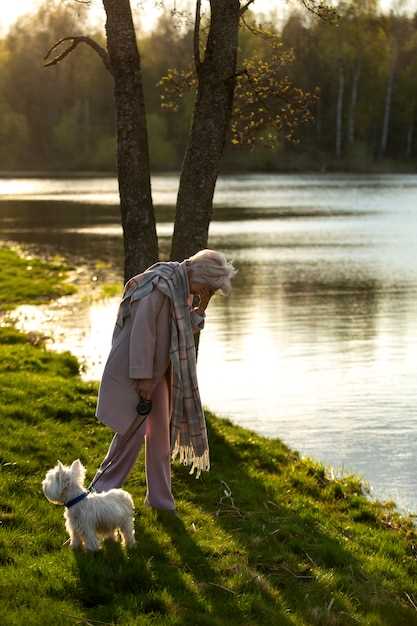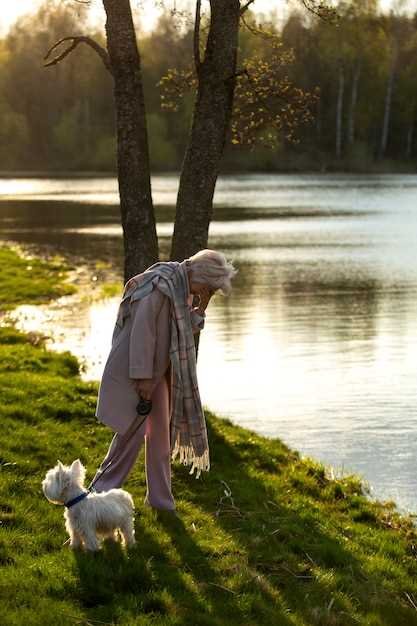Navigating the Emotional Journey of Pet Loss Grief
Every bond we form with our companions carries a unique significance. These connections are woven into the fabric of our daily lives. The love and joy they bring can be immeasurable. However, when separation occurs, it can leave a void that seems difficult to fill. Many people experience waves of sorrow and an array of feelings that can be quite overwhelming.
In such moments, it might feel as though the world is closing in. The memories can flood back, each one more poignant than the last. Reflecting on the laughter, calm, and warmth they provided often intensifies the pain. Yet, within this grief lies the potential for healing. It is important to recognize that navigating through this tumultuous time can foster personal growth.
Since every individual’s grief is unique, the path to healing varies widely. Some may find solace in shared experiences, while others seek solitude to process their emotions. Understanding the complexity of this sorrow is essential, as it can influence how we remember and commemorate those cherished moments. Grieving is not merely an end; it can also be a beginning of learning and honoring the love that was shared.
Throughout this experience, leaning on support systems can make a significant difference. Engaging in conversations with others who have faced similar heartaches allows for a greater sense of connection. Furthermore, finding ways to celebrate the life of a departed friend can offer comfort and a meaningful outlet for expression. After all, it is through embracing these emotions that we can begin to heal and carry forward the memories that last a lifetime.
Understanding Pet Loss Grief

The emotional landscape that unfolds after a cherished companion departs can be complex. For many, these bonds run deep, often surpassing the connections we share with people. Each memory, from playful moments to quiet companionship, holds a weight unique to every individual. The absence of this loyal presence creates a significant void in our daily lives. As we navigate the sorrow, it is essential to recognize that this experience is highly personal and can manifest in various ways.
Initially, feelings of confusion and disbelief can engulf one’s heart. Sadness may wash over, or anger might rise unexpectedly. Joyful recollections may intertwine with melancholic thoughts. Everyone reacts differently; however, it’s crucial to acknowledge these diverse responses as valid. Engaging in self-reflection can pave the way for healing.
Grieving can be an unpredictable process; it doesn’t adhere to a timeline. Some experience intense waves of sadness, while others may find solace in moments of laughter when reminiscing. While some may prefer solitude, others seek comfort in community. The loss of a friend who offered unconditional love can encompass a range of emotions. Just as relationships deepen, so too does the intensity of feeling when they come to an end.
Finding ways to honor the memory of your companion can be profoundly therapeutic. Creating a scrapbook, planting a tree, or even donating to an animal charity can contribute to the process. Each of these acts holds significant meaning and can serve as a tribute, helping to consolidate cherished memories while facilitating emotional healing. The path to acceptance may be gradual, yet it is entirely achievable.
Emotional Stages of Grieving a Pet

Experiencing a profound sense of sorrow after a cherished companion’s departure is a common occurrence. Each individual responds differently, shaped by their unique bond and circumstances. The waves of emotion can be intense and unpredictable. Accepting this tumultuous ride is essential.
Initially, one might encounter disbelief. It feels surreal. Following this, sadness often sweeps in like a heavy fog, consuming every thought and moment. Anger can surface next, directed at various aspects of life or even oneself.
In the midst of these feelings, individuals may seek clarity, questioning their previous decisions and the nature of their relationship. This introspection can lead to guilt, where individuals feel they could have done something differently to alter the outcome. Eventually, one might encounter acceptance, which does not erase the pain but does offer a semblance of peace as they begin to honor the memories and celebrate the life shared.
This emotional spectrum can evolve over time, becoming less intense yet lingering beneath the surface. Building resilience while cherishing those moments shared can help in moving forward.
Denial and Shock
Experiencing the unexpected absence of a cherished companion can be overwhelming. Emotions may swing wildly. It’s common to feel distant from reality. The mind often struggles to process what has just happened. This disorientation can manifest in various ways, sometimes leaving individuals feeling numb.
Denial often emerges as an instinctive response. People may think, “This can’t be real.” Such feelings serve as a protective barrier, shielding one from unbearable pain. In this moment of disbelief, the realization of absence feels unreal, as if a dream from which one cannot awaken.
Shock accompanies this experience, often creating a foggy mindset. Daily life may continue, yet something crucial is gone. There’s an unsettling emptiness that can be hard to articulate. Thoughts race, but the heart feels heavy. A single moment can stretch into eternity.
However, the shock eventually compels us to confront reality. Each reminder can provoke a fresh wave of sorrow. Family members, friends, and even familiar surroundings become significant triggers. The process of coming to terms with absence unfolds at individual paces. A sense of vulnerability lingers in the air, as if the world shifted subtly on its axis.
In the midst of turmoil, remember that these feelings are natural. Allow yourself to step back. Accepting denial and shock as part of the experience can foster healing. Communication with others who understand may bring solace. They can provide comfort when words seem inadequate.
Anger and Frustration
Experiencing strong emotions is common when faced with significant loss. Anger often arises as a protective response. It’s an expression of the chaos that accompanies such grief. Feelings of frustration can surface unexpectedly, catching individuals off guard. This turmoil can be overwhelming, leaving one feeling powerless and confused.
Many find themselves grappling with deep-seated rage that can manifest in various ways. Some individuals may direct their anger towards themselves, feeling remorse for what they believe they could have done differently. Others might lash out at friends or family, even if they mean well. This reaction often serves as a coping mechanism, albeit an unhealthy one.
The intensity of these feelings can vary daily, creating a rollercoaster of emotions that is difficult to manage. In moments of profound sorrow, it can be easy to fixate on unanswered questions and unresolved situations, leading to an internal conflict that feels unending. It’s crucial to acknowledge that anger is a normal reaction to unexpected changes and heartache.
Channeling this energy into constructive outlets can prove beneficial. Engaging in physical activity, journaling, or even speaking with a trusted friend may help in processing these emotions. Finding a safe space to express oneself without judgment is vital, as it can lead to healing and acceptance over time. Moreover, seeking professional support could provide further guidance through this intense period.
Ultimately, embracing these feelings rather than denying them can pave the way for eventual peace. Accepting that experiencing anger is part of releasing pain is essential. In the end, it’s about finding a way to honor what was lost while moving forward.
Bargaining and Guilt
Experiencing the aftermath of a beloved companion’s absence often brings forth complex emotions. This stage can be particularly torturous. It’s common to grapple with haunting questions and hypothetical scenarios. Feelings of remorse and wishing for an alternative outcome may surface. Individuals frequently find themselves reflecting on moments that could have changed everything.
People might think, “What if I had done something differently?” This thought pattern can lead to a spiral of self-doubt and despair. Often, individuals begin to bargain with fate, hoping to regain control over a situation that feels overwhelmingly tragic. This might manifest as promises to cherish every moment or to never take another friendship for granted.
Sometimes, these negotiations extend to a yearning for additional time or chances to demonstrate love. The weight of guilt can be suffocating. Consequences of decisions may appear larger than life. If only there had been another option. The struggle to come to terms with unfulfilled promises can create a cycle of inner conflict.
| Feelings | Description |
|---|---|
| Bargaining | Hoping for a different outcome through hypothetical negotiations. |
| Guilt | Feeling responsible for the loss or wishing for alternatives. |
Processing these emotional responses is not easy, yet it’s a vital part of healing. It can be tempting to dwell on what might have been. However, learning to accept these feelings is essential. Recognizing that bargaining is a natural phase can aid in moving toward eventual acceptance. Navigating through guilt allows for a pathway to forgiveness–both toward oneself and the situation that unfolded.
Depression and Sadness
Experiencing profound sorrow can often feel overwhelming. Those moments may linger long after the event itself. It’s a reality that can envelop individuals in dark clouds. Feelings of despair can lead to withdrawing from social interactions. Days can blend into weeks, marked by a consistent heaviness.
This emotional state varies from person to person. Some may find solace in conversations, while others prefer solitude. Common indicators include:
- Persistent feelings of emptiness
- Loss of interest in previously enjoyed activities
- Difficulty concentrating or making decisions
- Changes in appetite or sleep patterns
When these signs continue, it can become difficult to see a way forward. Coping mechanisms may seem inadequate. Support networks are crucial during this time, providing comfort and understanding. Talking to those who have faced similar challenges can be helpful. Journaling or engaging in creative activities may serve as an outlet for emotions.
It’s essential to talk about feelings. This interaction can create a pathway to healing. Sometimes sharing stories with friends or family brings relief. Engaging in new interests or hobbies can also shift focus. Gradually rediscovering enjoyment in life can help promote recovery.
While sadness is a natural response, seeking professional guidance can be beneficial. A therapist can offer tools and strategies tailored to individual needs. It’s a journey, one that often requires patience and self-compassion.
Acceptance and Healing
Coming to terms with profound absence is a critical step in moving forward. It involves recognizing what has occurred and allowing oneself to feel the weight of that reality. Emotions can be overwhelming at times, and it’s crucial to allow space for sorrow. Each individual finds their path to acceptance uniquely, and that’s completely natural.
The heart often takes time to adjust to profound change. Embracing one’s feelings is essential, yet it is equally important to understand that healing does not follow a strict timeline. Some days will be harder than others. However, moments of peace can gradually emerge as the heart learns to remember without the sting of pain.
Engaging with cherished memories can facilitate this process. Sharing stories, looking through photographs, or even writing about experiences can help in processing emotions. Conversations with trusted friends can also provide comfort and understanding. It’s vital to lean on supportive connections that allow for open dialogue.
Seeking new rituals can bring a sense of continuity. This might involve creating a special space to remember or participating in activities that resonate with the happy times. By honoring past connections, individuals honor their feelings and acknowledge the importance of love shared.
Through acceptance, individuals often discover that healing begins subtly. It may not be sudden, but it is profound. Over time, bitterness transforms into gratitude, allowing appreciation for the joy once felt. Each step taken, however small, represents progress toward embracing the future.
Support Strategies for Pet Loss

Experiencing the departure of a cherished companion can be deeply challenging. In this time of sorrow, various methods can assist in coping with the pain. Each approach may resonate differently for individuals. Support from others can ease the burden, while personal reflections can foster healing. It’s crucial to identify what brings comfort during these difficult moments.
- Reach out to friends and family for emotional support.
- Consider joining a local or online support group.
- Engage in creative expressions, like journaling or art.
- Memorialize your companion with a tribute or ceremony.
- Take care of your mental health through self-care practices.
Many individuals find solace in sharing stories, as it helps validate feelings and fosters connection with others who have faced similar experiences, reinforcing the idea that one is not alone on this path of heartache.
- Seek professional help if necessary, such as a therapist.
- Establish a routine to bring structure to your day.
- Spend time in nature to find peace and reflection.
- Read literature that resonates with your experience.
- Participate in activities that rejuvenate your spirit.
Ultimately, embracing your emotions, whether they be sadness, anger, or confusion, is key, as each response is valid and part of the healing process, allowing for personal growth and acceptance over time.
Finding Comfort in Community
Grieving a cherished companion can be an isolating experience. Many people find themselves lost in their sorrow, feeling disconnected from others. However, connection can be incredibly healing. Sharing your feelings with those who understand can bring a sense of relief. It’s important to remember that you are not alone.
Supportive networks exist in various forms. Online forums, local support groups, and social media can provide comfort and understanding. Surrounding yourself with empathetic individuals creates a safe space for sharing your thoughts and memories. Often, these connections offer validation, reminding you that your feelings are completely normal.
| Community Resources | Description |
|---|---|
| Online Forums | Virtual spaces where you can share experiences and seek advice. |
| Local Support Groups | In-person gatherings that provide a platform for sharing and healing. |
| Social Media Groups | Digital communities focused on support and sharing personal stories. |
Engaging with others who have faced similar challenges can create bonds that foster healing. You might discover inspiring stories that resonate deeply, giving you hope in times of despair. When you find a community that understands your pain, the process of moving forward becomes a shared experience. Through connection, the heavy burdens of sorrow can become lighter, allowing love for your companion to shine through even in dark moments.
Memorializing Your Pet
Commemorating a cherished companion can be a therapeutic experience. It’s more than just remembrance; it’s a celebration of the bond shared. Honoring their memory helps in acknowledging the deep connection that was formed. Each individual finds unique ways to pay tribute. Some actions resonate deeply with the heart.
Consider creating a space dedicated to your friend. This could be a garden or a small altar in your home. Surround it with their favorite toys, photos, and candles. Every item tells a story. Alternatively, you might choose to plant a tree or a flower in their memory, symbolizing the growth of love that remains.
- Craft a scrapbook with photos and stories.
- Hold a small gathering with close friends and family.
- Create a digital tribute, sharing memories online.
- Commission a piece of art that reflects their spirit.
Some individuals find comfort in volunteering at animal shelters. Giving back in honor of their soul can be uplifting and enriching. It transforms grief into action, making a difference for others. This process can help soothe the ache of absence while allowing a way to celebrate past joy.
Whatever method you choose, ensure it resonates personally. Each tribute is valid, no matter its form. Embrace what feels right for you, letting the memories flow freely. Through these acts, their legacy remains alive, woven into your heart forever.
Video:
Episode 12: Navigating the Emotional Journey of Pet Loss and Grief with Beth Bigler, Part 1
Episode 12: Navigating the Emotional Journey of Pet Loss and Grief with Beth Bigler, Part 1 by Cattitude Adjustment 15 views 8 months ago 57 minutes
Q&A:
What are the common emotions experienced during pet loss grief?
During pet loss grief, individuals often experience a wide range of emotions, including sadness, anger, guilt, and anxiety. It is not uncommon to feel profound sorrow and a sense of emptiness following the death of a beloved pet. Some may also experience anger towards themselves or the circumstances surrounding the pet’s passing. Guilt can arise from thoughts of wishing they had done more to prevent the loss, while anxiety might stem from the fear of facing a life without their furry companion. Recognizing that these emotions are normal can be the first step in navigating the grieving process.
How long does the grieving process usually last after losing a pet?
The duration of the grieving process can vary significantly from person to person, as it depends on various factors such as the individual’s relationship with their pet, the circumstances of the pet’s passing, and their previous experiences with loss. Generally, the acute phase of grief may last a few weeks to several months, while ongoing feelings of sadness can linger for years. It’s important to allow yourself to grieve at your own pace and not to rush the process; seeking support from friends, family, or pet loss support groups can also be beneficial during this time.
What are some ways to memorialize a pet after they have passed away?
Memorializing a pet can be a meaningful way to honor their memory and aid in the healing process. Some common methods include creating a special photo album or scrapbook filled with cherished memories and photos. You may also choose to plant a tree or flower in their memory, or create a designated space at home with their pictures and favorite toys. Others may opt for custom memorial items, such as engraved stones, jewelry with the pet’s name, or art pieces. Sharing your feelings and stories about your pet with friends and family can also be a therapeutic way to keep their memory alive.
Is it normal to feel guilty after the loss of a pet?
Yes, it is quite common to experience feelings of guilt following the loss of a pet. Many pet owners grapple with thoughts such as “I should have taken them to the vet sooner” or “I could have done more to help them.” These feelings are a natural part of grief, reflecting the deep bond shared with the animal. It’s essential to understand that it is often impossible to predict outcomes in pet health, and feelings of guilt should be approached with self-compassion. Talking about these feelings with a trusted friend or a therapist who understands pet loss can help in processing and alleviating guilt.
What resources are available for coping with pet loss grief?
There are many resources available to help individuals cope with pet loss grief. Local animal shelters and veterinary clinics often have support groups or recommend resources for grieving pet owners. Online forums and communities dedicated to pet loss can provide a platform to connect with others who understand the pain of losing a beloved animal. Additionally, there are books on pet loss that discuss various aspects of grief and provide coping strategies. Professional counseling, especially from therapists specializing in pet loss, can also be a great support. Utilizing these resources can help you navigate your grief and begin the healing process.
What are some common emotional responses people experience when losing a pet?
When a beloved pet passes away, individuals often experience a wide range of emotional responses. These can include shock and disbelief, especially if the loss was sudden. Feelings of deep sadness and grief are typical, as many view their pets as family members. Some may also feel guilt, wondering if they could have done something to prevent the loss. Anger and frustration may arise as well, directed at circumstances, themselves, or even the pet for leaving. Anxiety and loneliness are common, as pets often provide companionship and comfort. It’s important to acknowledge these feelings as normal and to provide oneself with the time and space to grieve.
How can I cope with the grief of losing my pet and begin the healing process?
Coping with pet loss grief can be a challenging journey, but there are various ways to help facilitate healing. First, allow yourself to feel the emotions rather than suppress them; grieving is a personal process that varies for everyone. Creating a memorial for your pet can also be a comforting way to honor their memory and express your love. Sharing your feelings with friends or family who understand can provide support, as can joining a pet loss support group. Engaging in activities that bring you joy or distraction, such as exercise, hobbies, or spending time with other animals, can also be beneficial. Lastly, consider seeking professional help if your grief feels overwhelming; therapists or counselors specializing in pet loss can provide valuable guidance. Remember that healing takes time, and it’s okay to seek support while navigating this emotional journey.
